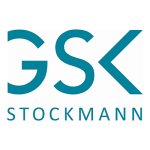Since the opening of the overseas subsidiary of Bank of China in Luxembourg in 1979, the grand duchy has emerged as a key entry point to the EU for Chinese financial institutions. Over the years, more Chinese banks have established European hubs in the grand duchy and Luxembourg is home to several overseas subsidiaries of Chinese banks, which have expanded their scope beyond traditional banking services to capital market activities and asset management. They actively participate in financing M&A transactions initiated by Chinese investors, thereby facilitating the expansion of cross-border investments between Europe and China.
Moreover, in 2011, the Luxembourg Stock Exchange (LuxSE) listed the first offshore renminbi (RMB) bonds, better known as dim sum bonds, issued in Europe. This development marked the beginning of a robust exchange between China and Luxembourg, with LuxSE becoming a preferred platform for Chinese investors seeking to list RMB in Continental Europe today. As a result, Luxembourg has established itself as a pre-eminent hub within the EU for financial services related to the Chinese market, and one of the largest renminbi centres outside China.
However, recent years have presented challenges to investment flows between the EU and China, largely influenced by socio-economic factors. Domestic constraints on Chinese outbound capital flows and tightening scrutiny of Chinese investments abroad have not helped the recovery of Chinese investment in Europe and Luxembourg after the COVID pandemic. The zero-COVID strategy – which hindered cross-border travel and, thus, dealmaking activities – is still having an impact on the recovery of the economy.
Moreover, following a first gradual recovery from the pandemic, the multitude of crises on the global stage – the war in Ukraine, rising energy prices, financial turmoil, debt pressures, and the crisis in the Middle East – slowed down global foreign direct investments (FDIs) and cross-border transactions in 2022 and 2023.
Despite these challenges, there is growing optimism among market players. With a progressive financial recovery and a modernisation of the EU regulatory framework, European and Chinese markets are expected to build a stronger relationship in the future.
Investment regulations
Overview
As regards practical considerations for making investments in Luxembourg, in general no specific pre-approval process for M&A transactions exists, but the deals may be subject to an approval process by the competent Luxembourg authority.
As for the restrictions on investment, specific rules may apply in certain sectors. For example, for acquisitions in the financial sector (such as banks or asset managers), an investor must notify its intention to acquire a certain threshold in a Luxembourg bank or financial sector entity to the regulator, the Commission de Surveillance du Secteur Financier (CSSF). The CSSF has the right to oppose the transaction based on reasonable grounds and legal criteria.
Other restrictions apply in certain industries or to the acquisition of companies with securities admitted to trading on a regulated market in Luxembourg, where the CSSF, being the competent authority, shall supervise bids impartially and independently of all parties to the bids. The related rules are established by the law of May 19 2006 implementing Directive 2004/25/EC on takeover bids, as amended (the Takeover Law).
Generally, the following rules apply to Chinese investors and investments, and there are no currency restrictions and no specific contractual provisions that arise in relation to Chinese investment.
Foreign direct investment
To implement Regulation (EU) 2019/452 of March 19 2019, the law of July 14 2023 on FDIs (the FDI Law) was adopted to safeguard critical assets that are deemed crucial for national security or public order. The FDI Law introduces a mandatory notification and pre-approval requirement for non-European investors (i.e., natural persons or legal entities residing outside the European Economic Area) seeking to acquire control over a Luxembourg entity operating in certain activities in Luxembourg that are deemed critical for the national security or public order in the grand duchy (for example, energy, health, defence, finance, telecoms, data, and media).
FDIs that were not completed before September 1 2023, potentially falling in the scope of the FDI Law, must be reported to the Luxembourg Ministry of the Economy, along with relevant information about the investment, such as products, services, business operations, and countries of business activity. A ministerial screening committee will then conduct a preliminary analysis to determine if a screening process is required. The Ministry of the Economy and the Ministry of Finance will conduct a screening procedure to assess whether the proposed FDI is likely to affect security or public order. A decision will then be made to prohibit or allow the investment.
The newly introduced FDI regime has a potentially broad scope, covering any investment made in Luxembourg by a non-European investor taking control of a Luxembourg entity operating in one of the relevant sectors. However, the FDI Law does not impose any additional requirements on financial firms, given that any merger or acquisition contemplated by such entities must be approved in advance by the competent regulatory authority.
Furthermore, it is important to note that the FDI Law does not apply to ‘portfolio investments’ (meaning acquisitions of securities for the purposes of completing a financial investment without gaining control over a Luxembourg legal entity). Luxembourg holding companies are also exempt from the screening regime. Additionally, while private equity fund investments may fall under the FDI Law, it is uncommon for private equity funds based outside the EU to acquire targets in Luxembourg.
ESG
The EU is paving the way in setting out a legal framework on ESG aspects, sustainable investments, and related disclosure obligations, thus indirectly affecting the M&A market and the strategies of Chinese outbound investments in Europe. Some of the most relevant initiatives at the EU level in recent years were the entry into force of Regulation (EU) 2019/2088 of November 27 2019 on sustainability-related disclosures in the financial services sector and Regulation (EU) 2020/852 of June 18 2020 on the establishment of a framework to facilitate sustainable investment.
On the same topic, the Corporate Sustainability Reporting Directive (CSRD) entered into force in January 2023. The CSRD, among others, requires large companies, as well as listed SMEs, operating in the EU to disclose information on their ESG performance in their annual financial reports. Non-EU companies with substantial activities in the EU will also be covered. The first category of the impacted companies will have to apply the new rules starting from the financial year of 2024, and publish their reports in 2025.
Moreover, after several discussions, a renewed proposal for a Corporate Sustainability Due Diligence Directive (CSDDD) was approved by the Council of the EU on March 15 2024 and adopted by the European Parliament on April 24 2024. The CSDDD aims to force large EU and non-EU companies with significant EU activities to disclose the actual and potential human rights and environmental adverse impacts of their operations and value chains, and those of their subsidiaries. The directive must now be formally approved by the Council and published in the EU Official Journal, entering into force twenty days after its publication. Member States will then have two years to transpose the new rules into their national laws.
The Chinese government has been increasingly encouraging sustainable investment practices and prioritising ESG factors in overseas investment, since the ‘Belt and Road Initiative’ was incorporated into the Constitution of China in 2017. Moreover, Chinese FDI greenfield investments were almost a third of all Chinese FDI in 2021, and following years of rapid growth, in 2022 the volume of Chinese greenfield investments in Europe (€4.5 billion) exceeded the volume of M&A transactions (€3.4 billion) for the first time. Greenfield investments now dominate China’s FDI in Europe – particularly in the energy, battery plants, and automotive sectors – and they are expected to grow steadily in the years to come. The implementation of effective ESG policies and strategies by target companies may therefore attract more green and ESG-standardised investment from Chinese investors.
Merger control regime
On August 23 2023, the Ministry of the Economy introduced before the Luxembourg parliament a draft bill of law, No. 8296 (the 8296 Bill), regarding a mandatory ex ante notification and screening procedure for mergers concerning certain entities operating in Luxembourg. The 8296 Bill provides that any merger, acquisition, or creation of a joint venture that does not fall under the EU merger control regime set out in Council Regulation (EC) 139/2004 on the control of concentrations between undertakings shall be notified in advance to the Luxembourg Competition Authority if:
The aggregate turnover realised in Luxembourg by all enterprises involved in the concentration exceeds €60 million; and
At least two of the enterprises participating in the concentration generate an individual turnover in Luxembourg of at least €15 million.
The purpose of such a regime would be to give Luxembourg’s Competition Authority the power and the tools to carry out an ex ante control of certain M&A or other alignments between undertakings that may have a restrictive effect on competition in Luxembourg, and to allow for early detection of such threats to competition, potentially limiting damage to consumers and undertakings alike. The 8296 Bill is at the last stages of its adoption procedure and expected to be transposed into law in the near future.
The implementation of this regime presents another regulatory factor for Chinese investors interested in entering the Luxembourg market. They will now need to follow the mandatory pre-notification and screening process specified in the 8296 Bill when contemplating mergers, acquisitions, or joint ventures in Luxembourg. This will introduce complexity to their investment approach and highlight the significance of conducting thorough due diligence and ensuring compliance with Luxembourg’s competition laws.
The Foreign Subsidies Regulation
On July 12 2023, the Foreign Subsidies Regulation (Regulation (EU) 2022/2560) (FSR) entered into force. The FSR provides a framework for addressing the potential negative impacts of foreign subsidies on fair competition within the EU. It requires companies operating in the EU to notify the European Commission, starting from October 12 2023, of financial contributions received from non-EU governments that could affect their market behaviour and/or alter fair market competition. The FSR also empowers the European Commission to investigate and potentially intervene in cases where foreign subsidies are deemed to distort competition or harm the EU’s interests. Overall, the regulation seeks to safeguard the integrity of the EU’s internal market and ensure a level playing field for businesses operating within it.
Investment structures
The most common legal entity used for Chinese investment into Luxembourg is a private limited liability company (société à responsabilité limitée, or SARL) or a public limited liability company (société anonyme, or SA). Both are commonly used as structures for the acquisition of companies.
The SARL has a lower minimum share capital requirement and seems to be favoured over the SA. As regards investment activities by funds established by Chinese investors in Luxembourg, the most common structure appears to be the reserved alternative investment fund (RAIF), and, to a certain extent, the specialised investment fund (SIF). Both are set up as limited partnerships in the form of a société en commandite simple or a société en commandite spéciale. In addition, an investment company in risk capital (société d'investissement en capital à risqué, or SICAR) is also commonly used by investors, including Chinese investors, to pool money for investment.
The key requirement for setting up, and using, any of these vehicles is the establishment of an entity in Luxembourg with sufficient substance. A minimum share capital needs to be provided to the Luxembourg vehicle, and management procedures must be put in place. More specifically, a majority of the management members of the vehicle shall be Luxembourg resident and regular board meetings shall be held in Luxembourg, to ensure decisions are made in Luxembourg.
In establishing investment funds that carry out M&A activities, investors must verify that these comply with the regime of alternative investment fund managers and obtain the applicable approvals from the CSSF. While RAIFs are not subject to CSSF approval, the SIF and SICAR investment vehicles must be pre-approved by the CSSF before they can begin their business activities.
Dispute resolution
The most commonly used dispute resolution mechanisms are court litigation and arbitration. Arbitration is generally favoured by foreign investors due to several advantages it offers, including ease of enforcement of arbitral awards compared with court judgments, greater flexibility, and enhanced privacy.
By 2023, Luxembourg was party to over 100 bilateral investment protection treaties, including a treaty with China, the latest version of which entered into force in 2009. Given the grand duchy’s increasing role as a platform for cross-border investments, joint-venture vehicles, and investment funds carrying out M&A activities worldwide, Luxembourg’s arbitration courts have gained significant expertise in matters concerning international agreements and international commercial law.
As regards litigation, Luxembourg courts are known for reviewing disputes in a neutral and independent manner within a reasonable timeframe and issuing enforcement judgments recognised abroad as far as other jurisdictions are covered under respective regulations and treaties. The most important pieces of regulation on jurisdiction and the recognition and enforcement of judgments in civil and commercial matters are the Recast Brussels Regulation (Regulation (EU) No. 1215/2012) and the Lugano Convention.
Case law also serves as a valuable source of legal precedent and guidance for resolving disputes effectively.
However, parties in Luxembourg tend to resolve disputes outside arbitration and courts to maintain confidentiality and enable a smooth continuation of their business.
Tax rules
Regarding taxation, Luxembourg benefits from an extended network of double taxation treaties advantageous for FDI into and out of Luxembourg. Luxembourg and China have signed a double tax treaty allowing companies to avoid double taxation in the case of profit repatriation to Chinese investors, provided that the required conditions are met. In addition, the European Parent–Subsidiary Directive (Council Directive 2011/96/EU) typically allows for an exemption of withholding tax on dividends paid to a qualifying EU parent companies.
The law of March 25 2020 implementing Council Directive (EU) 2018/822 of 25 May 2018 amending Directive 2011/16/EU as regards mandatory automatic exchange of information in the field of taxation in relation to reportable cross-border arrangements (DAC6), which entered into force on July 1 2020, requires intermediaries to disclose to the Luxembourg tax authorities any cross-border arrangements that meet a condition.
This regime inevitably impacts cross-border M&A structuring by Chinese investors, as cross-border M&A tax structuring in terms of the review of the share purchase agreement, tax structuring upon acquisition, cash repatriation strategies upon sale, etc. need to be carried out in accordance with such a transparency regime.
Moreover, on May 3 2023, the Luxembourg parliament adopted a law transposing further amendments to Council Directive 2011/16/EU on administrative cooperation in the field of taxation (DAC7) into national legislation. The proposed reform contains several sections that complement and extend the existing domestic rules on tax transparency and exchange of information. In addition, in October 2023 the Council of the EU adopted further amendments to Council Directive 2011/16/EU on administrative cooperation in the field of taxation (DAC8), with the aim of introducing new reporting obligations for service providers or operators involved in providing crypto-asset services to EU resident customers.
On January 17 2023, the European Parliament approved a proposal for a council directive laying down rules to prevent the misuse of shell entities for tax purposes and amending Council Directive (EU) 2011/16 (the ATAD 3 Proposal). This approval follows a little over a year after the initial proposal was first published by the European Commission. The ATAD 3 Proposal provides a multi-step test to facilitate the identification of shell entities, and introduces automatic exchange of information for all in-scope entities by amending Council Directive (EU) 2011/16. However, the proposal is still in draft form due to ongoing discussions at the EU level.
Once adopted, the new regime is expected to have an impact on EU corporate taxpayers, including Chinese investors that set up legal entities in the EU or Luxembourg that have no, or only minimal, substance, and that perform no actual economic activity, which pose a risk of being used for improper tax purposes, such as tax evasion and avoidance.
Outlook
Overall, the business relationship between Luxembourg and China continues to evolve, driven by mutual interests, economic cooperation, and legal frameworks that facilitate trade and investment between the countries. The legal and political stability of Luxembourg’s regulatory and legislative framework, as well as its growing fund industry and financial sector, are still the main considerations for Chinese investors making investment decisions. Luxembourg, in particular, remains a leading hub for supporting green investment flows, presenting opportunities for Chinese investors to enter European markets.
However, strict capital controls in China, socio-economic factors, and expanding screening regimes and scrutiny of Chinese investment in the EU might slow down Chinese investment in and through Luxembourg in 2024.
Geopolitics could be the main factor affecting bilateral relations between China and the EU. The impact of the war in Ukraine and geopolitical tensions in the Middle East on China’s investment will depend on the development of the crises and the stance the Chinese government takes towards the conflicts. However, these tensions have already triggered intense debates on critical infrastructure and resilience in Europe, which could, in turn, increase scrutiny of Chinese investment in a number of industries.
Despite these challenges, certain sectors – such as consumer goods, automotive, electric vehicles, and infrastructure – continue to attract attention and interest from Chinese investors. Emerging trends focusing on the environment, climate change, and technological advancements (including the rise of AI) are also gaining traction.
On the other hand, ESG factors are becoming more prominent in investment decision making. Chinese investors are therefore encouraged to enhance their competitiveness and capitalise on emerging opportunities in Luxembourg and the broader EU market by developing expertise in ESG topics and aligning their investments with sustainability goals. This strategic alignment would not only strengthen their position in the EU market but also demonstrate dedication to fostering long-term value creation and practising responsible investment principles.



